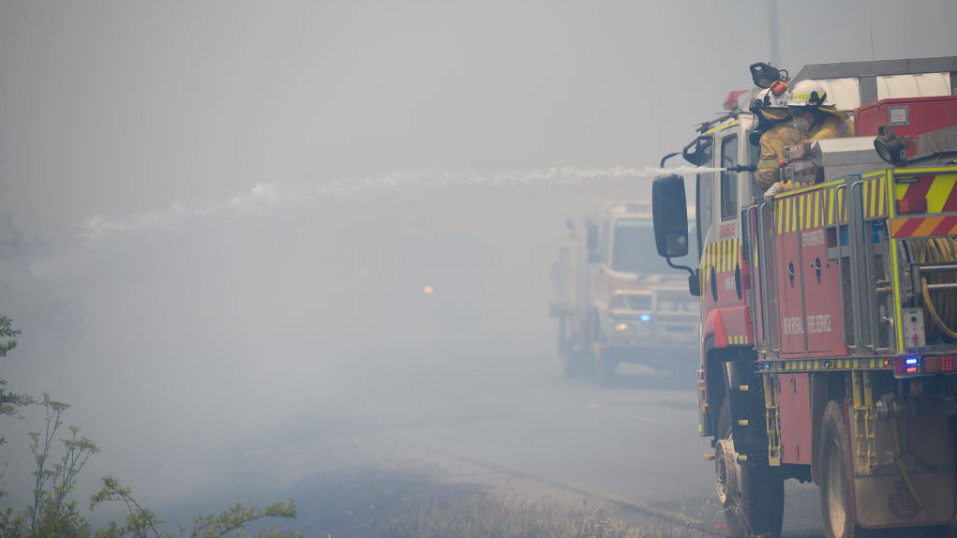A new insights report from CAPA - Centre for Aviation, one of the world's most trusted sources of market intelligence for the aviation and travel industry, entitled 'Bushfires, economy and now Wuhan slash Australia's air travel', argues that even once the bushfires are extinguished and the Wuhan virus concerns reduced, their residue will be cancelled forward bookings, however fast things return to normal, however, you now define normal.
"Much of the damage has already been entrenched, so there will be a need for sustained and coordinated remedial action if the anticipated losses are to be avoided," CAPA says. It predicts Australia's 2020 outlook for aviation and tourism "is now likely to be muted" and the impact on the already soft economy "will be pervasive".
As such, it will show in the national GDP figures, but importantly, because of the shape of this industry, the damage will be felt widely. CAPA notes that airports will show "low or even negative growth" across the country, although it explains that financially the private operators will be "compensated by the effects of very low interest rates on their usually substantial debt burdens".
The major airlines will also suffer the effects of slower growth, but CAPA acknowledges their hold in the valuable domestic market is such that "these should be offset by higher yields", but it is the accommodation and surface transport sectors that will "probably be worst hit," according to CAPA, after already serious damage in the past two months.
The widely publicised fires across many hundreds of thousands of hectares of bushland, right into many popular tourism destinations, has caused a sudden and much steeper drop in arrivals; international tourists stayed away and many domestic travellers changed plans, right at the height of the domestic holiday season.
Now, with memories of 2003's catastrophic SARS impact almost faded from memory, the threat of an animal-originated pandemic rears its head again - just as the massive Chinese New Year holidays were due to begin. China is Australia's largest international inbound tourism market, and as many Chinese now call Australia home, the two way flow has increased the overall volume of traffic significantly over the past decade.
The conditions inevitably softens investor attitudes. Qantas has seen its share price decline by almost 10% through a challenging January. But, it is not alone. CAPA's research highlights that Cathay Pacific and China Southern Airlines have seen similar falls, the latter over a much shorter period of time.
While Qantas has felt the pressure of the bushfires more than most of its rivals, the coronavirus has a wider impact and reduced international flying by its foreign competitors benefits its international market strength.
MORE INSIGHT... read the full insight from CAPA - Centre for Aviation Bushfires, economy and now Wuhan slash Australia's air travel
Bushfires, economy and now Wuhan slash Australia's air travel
But, do the events of the past month simply cloud what was already a challenging situation. CAPA highlights that even before the external events, Australian air passenger traffic was sliding.
"As Australia's economy stalled in 2019, the propensity to travel drifted to neutral. Neither of the two major airlines showed any inclination to add capacity either, preferring to focus on profitability," it explains.
The financial impact of the bushfires is hard to estimate, but the Australian Tourism Export Council estimates an AUD4.5 billion cost due directly to the effects of cancellations in the short and medium term.
Tourism Australia has quickly launched new domestic and international marketing campaigns that aim to "encourage Australians to holiday in Australia" and protect and "restore Australia's reputation as an international tourism destination".
It says these will "provide support specifically to affected communities and regions, but also more broadly support to the entire industry that is affected by this downturn".
But, CAPA says the Australian government "has long failed to support a tourism industry that has pervasive economic and social benefits" and describes international tourism, despite being Australia's largest employer and second or third largest earner of foreign exchange, as "the poor cousin in Australian politicians' eyes".
"The industry doesn't attract the political recognition that the mining and agricultural industries are able to generate. It is simply taken for granted that the business will continue to grow, stimulating employment and regional development," it adds.
Faced with a foreign exchange loss of billions of dollars as tourists stay away, there is just a chance on this occasion that the government could be awakened to the pervasive value of tourism to the economy, right across the nation. "Bandaids will not be sufficient to recover the lost ground on this occasion," says CAPA.